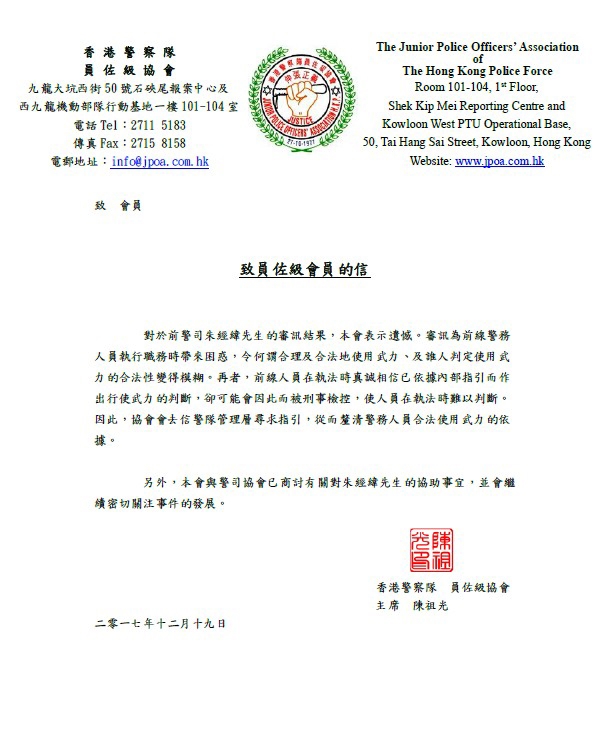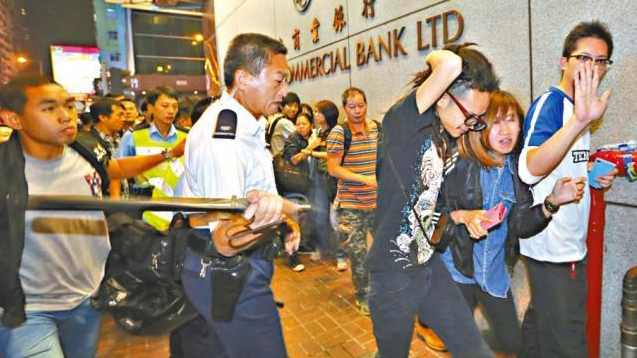A police union says officers are confused about when they can use force legally following the trial of 57-year-old retired superintendent Frankly Chu, who was found guilty on Monday of hitting a pedestrian during the 2014 pro-democracy Occupy protests.
“The trial has brought confusion to frontline officers executing their duties, as it has become unclear what constitutes the reasonable and legal use of force, and who decides whether that use is legal,” the Junior Police Officers’ Association said in a letter to its members on Tuesday.

Expressing “regret” over the conviction, the union said the court decision has made it difficult for officers to determine whether their actions are legal.
“Even if frontline officers truthfully believe that they have used force in accordance with the internal guidelines, they may still face prosecution,” it said, adding that it had sought guidance from police management over the matter.

The pro-democracy Civil Human Rights Front expressed surprise at the union’s statement and questioned whether officers were receiving adequate training. The group has for years called on the police to disclose its internal guidelines in order to ensure public accountability.
Meanwhile, the Superintendents’ Association said Tuesday that Chu was “passionate about his work and well-liked by his colleagues” and pledged support for the retired cop through legal means. Police Inspectors’ Association chairperson Lee Jim-on said he hoped that Chu’s conviction would not lead to a loss of morale in the police force.
A number of pro-establishment politicians, including Regina Ip and Holden Chow, have expressed sympathy towards Chu.
Complaint mechanism
Osman Cheng, the victim in the case, said Tuesday that he might not have taken legal action had Chu apologised early on and sent a clear message that the force was willing to take responsibility for its mistakes.
“It would have been fine if the force had told the public that [Chu’s] actions were wrong,” he said. Cheng added that Chu’s prosecution would “mean nothing if police continue to execute their duties with the same attitude.”

Cheng also questioned the impartiality and effectiveness of the Complaints Against Police Office (CAPO), an internal unit of the force.
In 2015, CAPO held that Cheng’s complaint was “not fully substantiated,” but the decision was rejected by the Independent Police Complaints Council, a police watchdog.
Edwin Cheng Shing-lung, then a member of the Council, told Apple Daily on Tuesday that the watchdog substantiated the complaint by a 17:3 vote. He said the vote was conducted by secret ballot as some pro-government members on the Council might feel pressured to vote against the complaint if their names were recorded.
Cheng added that some individuals tried to influence the watchdog by lobbying pro-government members.
The prosecution eventually pressed charges against Chu in March this year, more than 850 days after the incident.
During Monday’s verdict hearing, Principal Magistrate Bina Chainrai said Chu had no reason to hit Cheng with a baton and that his actions were unreasonable and unacceptable.
Chu has been remanded in custody and is expected to spend his birthday next Monday in detention. The court will hand down a sentence at a later date.
